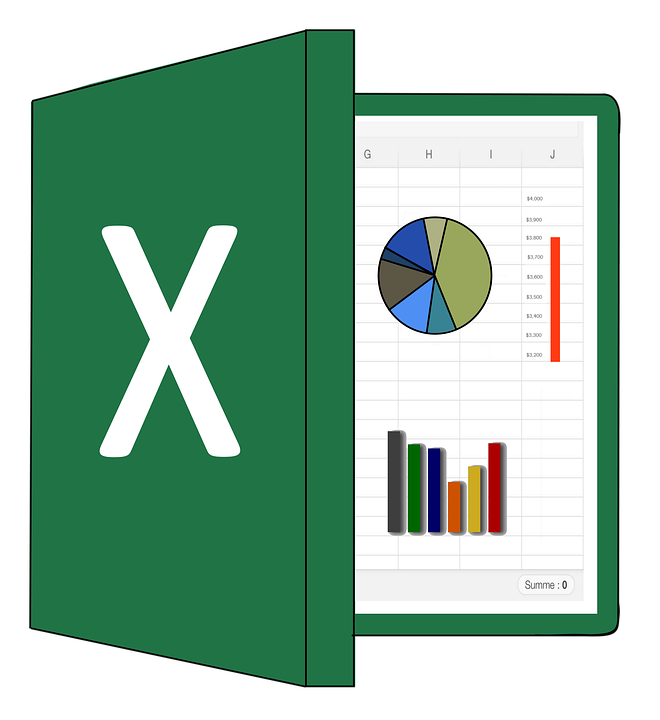3 Online Accounting Software Options for Small Business
Post Updated on May 4, 2020
As cloud computing becomes ubiquitous, the number of cloud based online accounting software options continues to grow. Many small business owners want a software that has an intuitive and easy-to-use interface that allows them to bill customers, enter expenses, record bank transactions and generate financial statements and other reports,. We also want to be able to access the software from anywhere (you never know when the desire to do your accounting strikes!) and not be tied down to a specific location Below is a summary of 3 cost effective, multi functional alternatives :
Quickbooks Online:
For a comprehensive view of QBO, please see our review of Quickbooks Online for small business
The basic (EasyStart) version, at $20.00 per month, provides you with the ability to track your invoices and expenses, including sales taxes, and to see where you stand with respect to your customer receivables. It also allows you to automate the download of your bank transactions thereby reducing the amount of time it takes to enter and categorize transactions. You can customize invoices (although the functionality on this is somewhat limited in QBO in general) and provides several reports including balance sheet, profit-loss, accounts receivable. sales by customer etc.. You can manage your account from either a Windows or Mac platform as well as your iphone and/or Android (basically anywhere in the cloud). While there are no limits on the number of the customers or transactions, only one user can logon at a time (+ your accountant). This is ideal for independent contractors, consultants and freelancers who are basically one person operations, that want an easy and cost efficient way to track their financial transactions and issue invoices. Since they don’t have many expenses, it is not important to track their accounts payable/amounts owing to suppliers and they only require one user account.
There are two additional upgrades. QB Essentials is $35.00 per month, is probably the most popular of the plans as in addition to the above it allows you to track your accounts payable, you can have multiple users and importantly for some, there is multicurrency functionality which allows business owners to invoice in any currency while QBO calculates and properly records the exchange rates. The upgrade to QB Plus at $50.00 has the additional feature of being able to track inventory for those businesses that sell products and need to track costing, quantities on hand and sales data by item.
Payroll and credit card processing are available as add-ons and have to be purchased separately. QB has two levels of payroll - a basic version, which is somewhat limited and requires the user to remit DAS and submit their T4s/RL1 manually. The advanced version, which is powered by Wagepoint, automates the process on the user’s behalf so that they only have to process the salary/enter hours (where applicable) and everything else include DAS submission to both CRA and RQ and year end T4/RL1 submissions.
Xero:
Although the company is based in New Zealand, it is customized to small business owners everywhere. The functionality is similar to Quickbooks. The Starter plan at $20 a month allows for 5 customer and vendor transactions and 20 bank transactions per month which could be problematic for anyone who has more than 5 clients or customers. The Standard plans at $30 allows for unlimited transactions but does not support multicurrency. The Premium plan at $40 per month includes a multicurrency option.
In terms of features, Xero also has bank downloads and matching, invoicing, billing and reports similar to QBO. They also have mobile apps and inventory tracking. In fact there are few differences in terms of functionality between the software. (I will point out that while both QBO and Xero allow for sales tax reporting, it is better handled in QBO as it captures transactions that may have been missed in previous periods while Xero only reports on transactions in the period specified.)
Both QBO and Xero have an app marketplace with hundreds of apps (that are being added to daily) that interface and integrate with each software.
Perhaps the most significant difference between Xero and QBO is the interface and the way transactions are handled. Some users love the way Xero looks and feels while others prefer QBO for the way that it handles banking downloads and sales tax.
Kashoo (formerly Clarity Accounting):
For small businesses whose need to track invoices, expenses, payables, receivables and bank balances, this is a good lower cost alternative to QBO and Xero. For $16.65 a month, the user can enter unlimited transactions, create invoices, enter expenses, create financial reports and download their bank statements. User access is unlimited, and they support multicurrency transactions. They use machine learning similar to QBO and Xero to help categorize transactions. While I have not used Kashoo, the interface seems intuitive and easy to use.
Kashoo notably lacks an app marketplace and a payroll add on feature, however they have partnered with Payment Evolution, a third party, for those businesses with employees.
The choice, of course will depend on your requirements and what you are willing to spend. Since all software have free trials I would recommend that users who are pondering which one to choose should test all to see which one fits better. If there is more than one user in a company, then the one who is expected to interact most with the software should be the prominent decision maker. It is also important to consult your accountant to determine if they support the software and are able to work with it directly. While this shouldn’t be the sole basis for choosing an accountant, it means that the business owner or bookkeeping staff have to export documents at the end of the year to give to an accountant who is not familiar with software, which means more work and complexity for the business owner.
Ronika Khanna is an accounting and finance professional who helps small businesses achieve their financial goals. She is the author of several books for small businesses and also provides financial consulting services.
Subscribe to our biweekly newsletter to receive articles, tips, tools and special offers for small businesses.










"QuickStart Your QuickBooks" is the ultimate guide for Canadian businesses looking to master QuickBooks Online (QBO). This comprehensive 250-page book transforms beginners into confident intermediate users, offering step-by-step instructions on everything from data migration and daily tasks like invoicing, to customizing your setup to handle Canadian sales taxes. With no prior accounting knowledge necessary, this guide includes screenshots, best practices, and essential reports to help you increase profitability and take control of your finances. Dive into QuickBooks with confidence and ease, and let "QuickStart Your QuickBooks" streamline your business operations.
Download your free QBO Set Up Checklist